Hunting, Blood Suspicion, East Love, Gao Cangjian, Yamaguchi Momoe, Honami Suzuki … Which Japanese film and television drama do you remember?

Hirokazu Koreeda’s film "The Thieves’ Family" set off a modest Japanese film and television craze after meeting domestic audiences this year. In fact, as the main carrier of Japanese culture, Japanese film and television works have always enjoyed a good audience relationship in China, and many of them have left a deep impression on China audiences, which can still trigger collective memories and arouse great resonance today.
It can be said that these Japanese film and television works participated in our youth memories. Nowadays, in the era of high-definition images flying all over the sky, I will recall those pictures with some color distortion and blurred images, but what remains in my mind is extremely clear and sincere emotions! This beautiful memory is like washed gold in the years. It will not really pass away because of the long time, but let everyone who has loved and been young hide and shine in their hearts.

Chasing: The Male Aesthetic Changes Brought by "Looking for Gao Cangjian"
Back to 40 years ago, the conclusion of the Sino-Japanese Treaty of Peace and Friendship opened a honeymoon period of bilateral relations. In order to further strengthen cultural exchanges between the two countries, two Japanese films, Chasing and Witness, were introduced in succession for the first time that year. As soon as these two films were released, they immediately caused a sensation.
Objectively looking at the quality of the two films, both of which are directed by Junya Sato’s works, "Witness" expresses much higher awareness of social problems and profound excavation of human nature than "Chasing". However, in the eyes of Chinese mainland audience at that time, Hunting, a suspense action film starring Gao Cangjian two years ago (1976), undoubtedly had a charm that was more suitable for the audience. Du Qiu, the tough guy prosecutor portrayed by Gao Cangjian in the film, is unsmiling but affectionate; Mayumi, played by Ryoko Nakano, is passionate, dare to love and hate; Yoshio Harada’s character, Yacun Sheriff, is smart, handsome and upright. In addition, the background of the whole story shuttles back and forth among the colorful city scenes and beautiful mountains and forests in the Japanese metropolis. The plot is in the sky, the protagonist is on the run, and the process of solving the case is full of crises and layers of progress. Finally, the grievances are washed away and the beauty is finally returned. It can be described as hearty!

In essence, this film follows the routine of all classic heroic legendary adventure stories, and the characters also have distinctive comic characteristics. It can be said that it is a Japanese version that imitates American action movies in large numbers and belongs to the most acceptable model in popular culture. Although this film style was not new in other countries in the world at that time, many China audiences were shocked when they first saw such an impact film, which caused the streets and lanes to discuss and even imitate the classic scenes in the film. For example, "Keiji Yokomichi" was originally the name of a character in the film, but because of its impressive image, it was extended into a popular term at that time in China and became a synonym; For example, at that time, young people who were fashionable in the streets and lanes liked to have long sideburns, so-called "Yacuntou", mainly because the police chief Yacuntou in the film was so handsome.
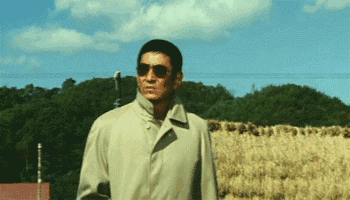
The tough guy image of Du Qiu played by Gao Cangjian is sought after by countless boys and girls in the society; At that time, there was a popular quip: "Jump, you jump, you will melt in the blue sky …", which comes from a plot paragraph at the end of the film; Even the famous comic dialogue Chess has a large parody of the film lines and theme songs. Its various phenomena are enough to prove how much social sensation this film caused at that time.
The horses galloped in the streets of Tokyo, and the leading horse, the bordeaux horse, was like a fire carrying a couple of lovers to break through the encirclement of the police … This heroic and extreme romance subconsciously released the audience’s long-cherished desire. Mayumi’s heroic temperament image also seems to be a symbol of a new generation of women’s self-liberation. No wonder when asked about the audience of that year, they all expressed their deep impression on this passage in the film.
Special mention should be made to the prosecutor Du Qiu played by Gao Cangjian, whose tough appearance and personality have deeply influenced the aesthetics of many audiences. The so-called men bleed without tears, iron shoulders bear morality, and righteousness stays in the world. This kind of screen image was brought into the hearts of mainland audiences through Gao Cangjian’s interpretation, which corrected the once popular image of "butter kid" on the screen at that time and became the idol of the times. Asked about the older generation’s views on Hunting, they paid tribute to Gao Cangjian. Zhang Yimou, the film director, has repeatedly mentioned that his idol is Gao Cangjian in various interviews and reports. At the same time, Gao Cangjian was also the original motivation for his decision to shoot "Riding Alone for a Thousand Miles".
Now that Mr. Gao Cangjian has passed away, compared with the changes of male images in Asian popular culture, it is really a sigh that time has passed and people and things have changed.
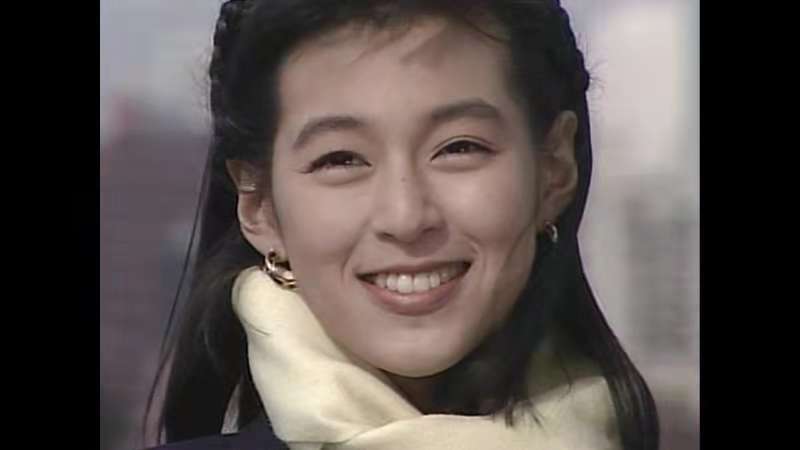
Love Story in Tokyo: The Enlightenment of Love and Li Xiang
When the time came to 1995, the accumulation and achievements of reform and opening up in the past 20 years not only enriched people’s material life, but also greatly enriched people’s spiritual and cultural life with the influx of new dramas and movies one after another. Therefore, this year, when "Tokyo Love Story" was broadcast on Shanghai TV, there was no grand occasion of the national "Hunting" and "Blood Suspicion".
However, the good drama will not be buried after all. Although the drama is no longer popular among the older generation of Japanese drama audiences, Love Story in Tokyo has gained excellent reputation and good ratings among the new youth groups after 70 s and 80 s, once again detonating the topic about Japanese drama.
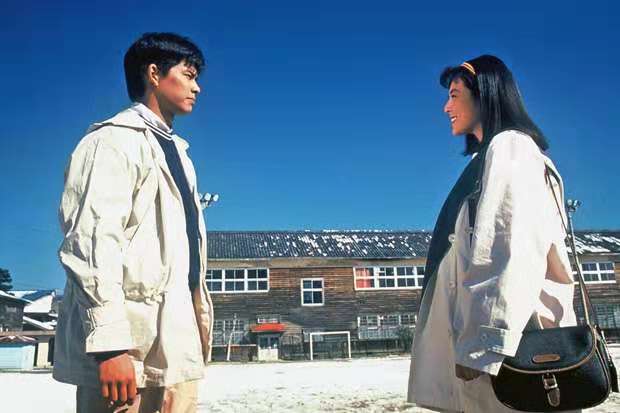
Compared with the series seen by Chinese audiences in the past, the overall style of Tokyo Love Story is more modern. Although the drama was broadcast in Japan in 1991 and received a good response, it was introduced several years later in China, but its portrayal and depiction of the love stories of white-collar young people in modern metropolis still has a very fashionable impression for Chinese audiences. Different from the past, this drama no longer takes bitterness and loyalty as the selling point to earn the audience’s tears. Both the male and female protagonists in the drama have different personalities and emotional demands from traditional behaviors and values in their thoughts and behaviors. The whole plot almost no longer involves the role of the parents of the characters in the play, and the love between young men and women is completely independent. The love triangle, swinging from side to side, and even cheating are all manifested, but because the characters are so authentic, especially the heroine is extremely cute, everyone who has seen this classic Japanese drama will be deeply attracted by it. Although Wanzhi left Chiminglixiang in the play, Chiminglixiang became the ideal girlfriend in the eyes of countless men outside the play.
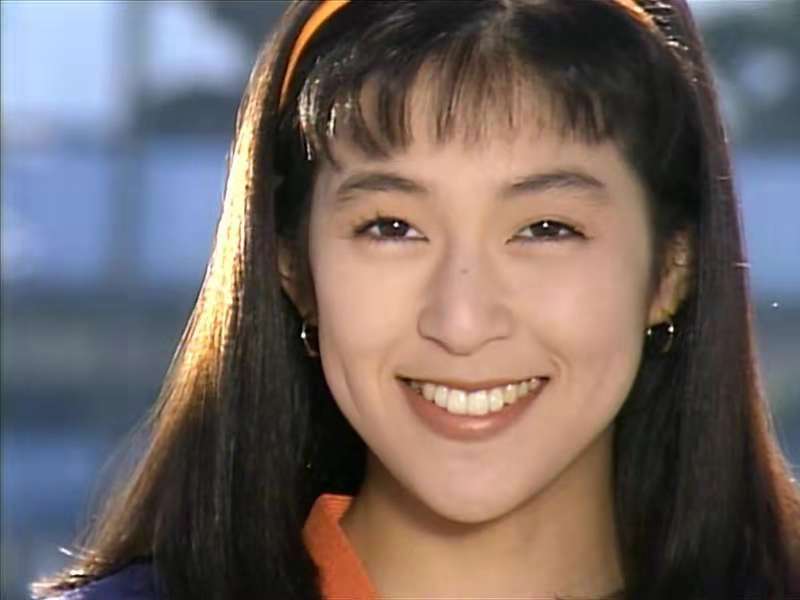
The author has communicated with many post-80s generations who have seen this Japanese TV series, and found that in their memory, this TV series can almost become a textbook for men and women’s emotional enlightenment, and even often analyzes and judges the characters in their own lives in order to make rational and correct decisions in their emotional life. The topic that people relish is: Is it a correct choice for Li Xiang to give up the final treatment? Does the swing in Wanji’s personality prove that he is really a childish "love rat" inside? Is Rimei, who ended up with Wanji, a "scheming woman"? All kinds of arguments have been going on for many years, and with the spread of the influence of the drama, it is widespread among Asian audiences, which is enough to express the audience’s love for this 12-episode TV series.
It is said that the colonnade of the primary school engraved with the names of Li Xiang and Wan Zhi has not been demolished so far, and the park where they met for the first time and broke up for the last time in the play is still there. At last, the station where Li Xiang broke up with Wan Zhi has now become the most popular couple’s shrine in Japan, and many people, like Li Xiang, have written their wishes on a white scarf and tied them to the railing. Readers who have the opportunity to travel to Japan may still find all kinds of places where the two left memories in the film. I won’t tell you much if I sell it here. Let’s look for clues in the play.
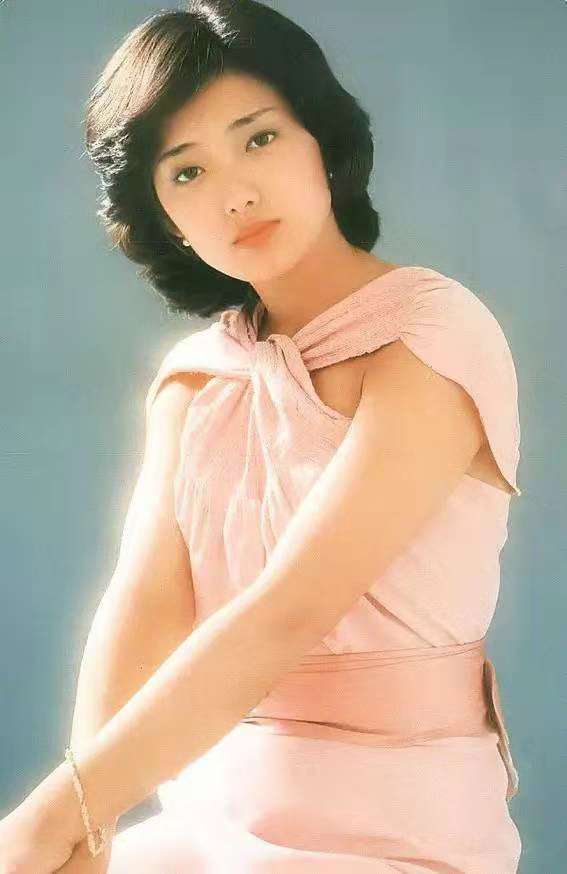
Yamaguchi Momoe: Natural Beauty and Myth Created by Retirement.
After The Hunt and The Witness, Chinese mainland’s classic masterpieces such as Sandware, The Call of the Distant Mountain, Happy Huang Shoupa and so on came on the screen one after another. At the same time, during this historical period, with the gradual acceleration of China’s reform and opening-up, Chinese people have also become rich rapidly, and televisions that were previously unthinkable have actually entered thousands of households. In 1984, a Japanese TV series called "Blood Suspicion" was broadcast on CCTV. The broadcast of this film immediately caused a sensation at that time. It is definitely not an exaggeration for thousands of families to watch "Blood Suspicion".
The heroine of the play is played by Yamaguchi Momoe, a popular Japanese actress. The TV series was originally filmed in 1975, and it took nearly 10 years for China audiences to see it. Yamaguchi Momoe was only 16 years old when he filmed this TV series. The ups and downs of the characters’ emotional experiences, together with leukemia, the mystery of life, the love between brother and sister and so on, attracted the audience firmly in front of the TV set like magic. This TV series, which only broadcasts one episode every Sunday, has become the focus of discussion among the whole people. Some people even feel miserable because the heroine Xing Zi was finally killed by illness. Yamaguchi Momoe’s hairstyle in the play and several styles of sweaters she wore led the fashion of young people in China at that time.
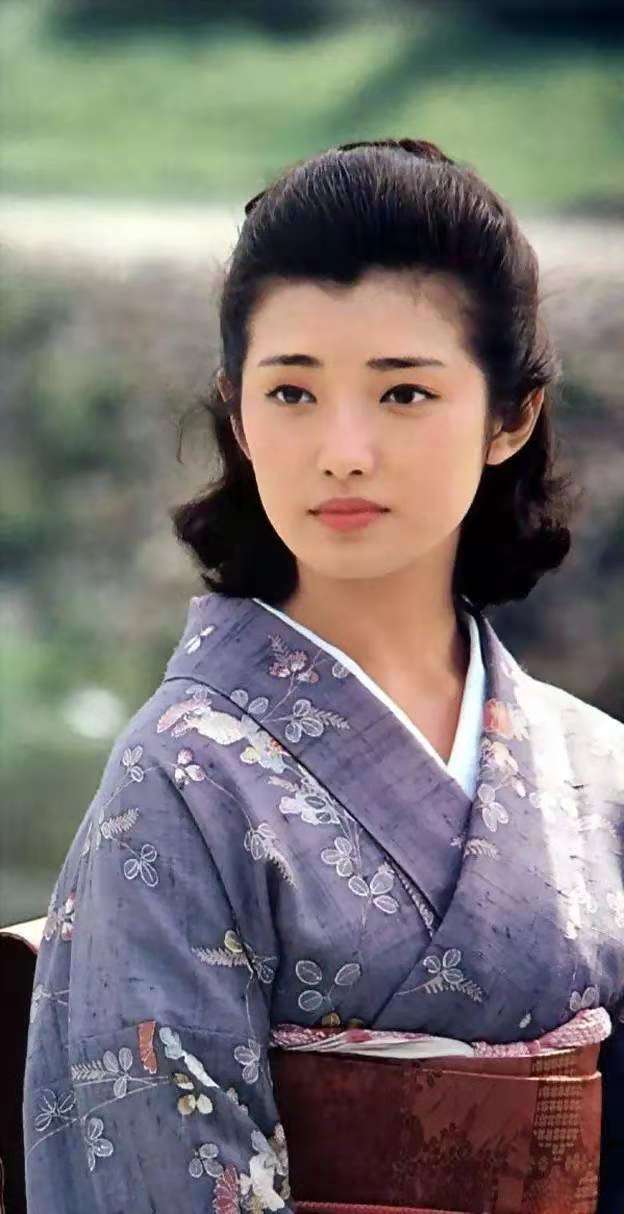
The two actors in and out of the play also have a sincere and passionate love under the long-term coexistence. In 1980, just as Yamaguchi Momoe’s acting career was at its peak, he suddenly announced his retirement and married his long-term partner, Tomokazu Miura. This incident also became the topic of the whole Japanese entertainment circle at that time. This couple has been married for nearly 40 years now, which is a real version of golden couple.
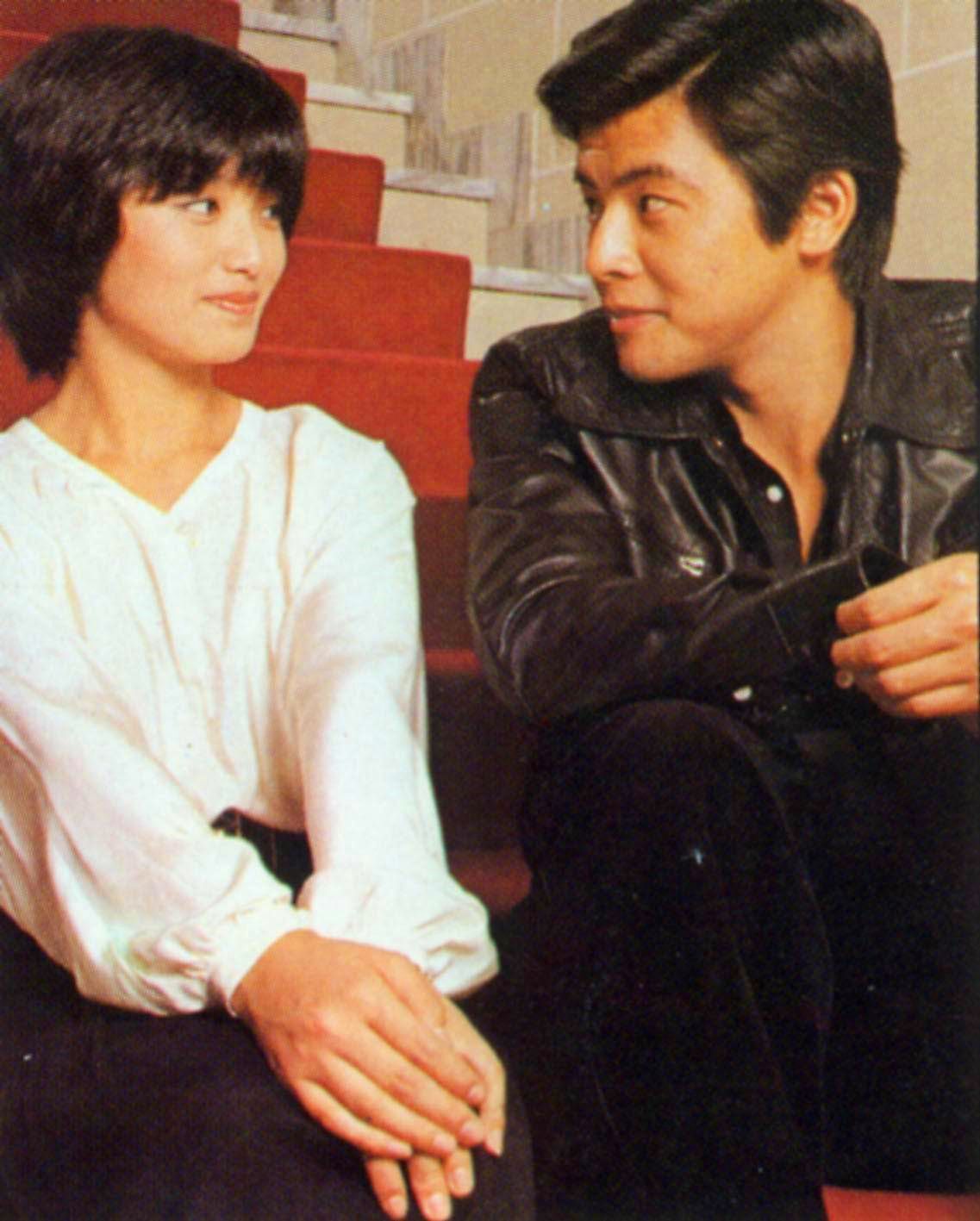
Yamaguchi Momoe’s popularity in China has attracted many fans to explore and recognize her whole acting career. Born in Shibuya, Tokyo in 1959, this poor girl was forced to live with her mother and grandparents separately because the landlord refused to take in her mother and daughter who were born out of wedlock. Although her grandparents loved her very much, she had to return to her parents’ family when she was four years old. In the Japanese society at that time, the mother toiled alone to support the family, but the father was unwilling to pay a penny for the maintenance. Being from a poor family, she had to take care of her sister in childhood and help her family share a job as soon as possible. Yamaguchi Momoe worked as a newspaper deliveryman in primary school, and soon after he went to middle school, he thought of graduating early and becoming a beautician, so that he could earn more money to subsidize his family.
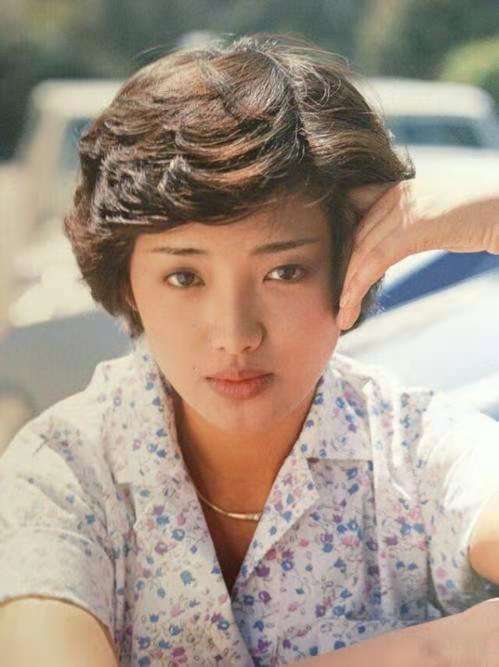
Perhaps the fond memory of her mother singing while sitting in front of a sewing machine in her childhood made Yamaguchi Momoe interested in performing arts. In 1972, 13-year-old Yamaguchi Momoe heard that she had the opportunity to participate in the singing contest of "The Birth of a New Star", so she signed up with the mentality of giving it a try. Unexpectedly, this seemingly rash decision unexpectedly changed Yamaguchi Momoe’s life. Yamaguchi Momoe won a full house with her simple and beautiful image, positive and optimistic attitude towards life and unique singing style, and began her brilliant acting career.
In 1974, Yamaguchi Momoe met Tomokazu Miura, then 22 years old, in an advertisement for shooting chocolate. They were presented in the advertisement with extremely youthful and energetic attitude, which is a model of the image endorsement of Showa Children. In the same year, the two co-produced the film The Dancer of Izu. This film is adapted from Nobel Prize in Literature winner Yasunari Kawabata’s early work of the same name. Yamaguchi Momoe’s first film performance rewarded the audience who expected her with excellent results. She plays the role of smoked inferiority with tenacity in her bones and a trace of melancholy in her innocence, which can be said to be a perfect interpretation of this classic literature.
With the success of her career, Yamaguchi Momoe began to make film appointments constantly, and her singing career was booming. In 1975, she held her first solo concert, which was a great success. Later, she cooperated with Tomokazu Miura for many times, making films such as Chao Sao, The Age of First Love and Farewell, as well as the TV series "Blood Suspicion" mentioned earlier. They were praised as golden couple on the screen by the audience at that time. Her lovely image, as well as the positive and tenacious character experienced in her early years in a difficult life, make the characters she created have a strong sense of hierarchy and complex internal personality, all of which mark the birth of a talented actress.
The charm of Yamaguchi Momoe lies in its natural beauty. She is tough in weakness, full of enthusiasm in elegance, and her poor background naturally makes her an audience. She looks special, not a standard beauty face, but she is very attractive. When Gong Li made her debut, some people described her as having two "Yamaguchi Momoe-style tiger teeth".
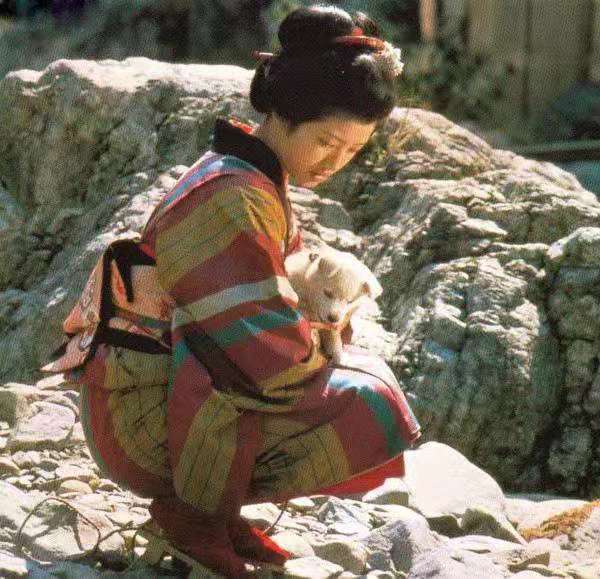
Just as her career was approaching its peak, in 1979, Tomokazu Miura, who was seven years older than her, finally proposed to her formally. Yamaguchi Momoe didn’t hesitate to agree, because in her opinion, two people seem to have been together for a long time, and are destined to accompany each other for life in the future. In 1980, before Yamaguchi Momoe and Tomokazu Miura were officially married, they suddenly announced their decision to quit the show business and prepare to concentrate on family life at home in the future. The real reasons for Yamaguchi Momoe’s withdrawal are still controversial. There is a saying that the author feels closer to the truth-it is said that Yamaguchi Momoe was so popular at that time that she wanted to fly solo. The agent who had agreed to help her become independent went back on her word and betrayed Yamaguchi Momoe. She realized that the glamorous life in the entertainment industry was full of institutional calculations, and she was really tired and disgusted. After many thoughts, she decided to quit the entertainment industry. It is said that when the decision was made, most people were against it. Only Tomokazu Miura stood by her side and fully supported her decision to live a strong life. Her feelings for Tomokazu Miura far exceeded the friendship between ordinary couples. After full withdrawal, she can not only concentrate on living a quiet life with Tomokazu Miura, but also take this opportunity to severely retaliate against the once treacherous company.
After Yamaguchi Momoe quit, as she promised, she would never come back and concentrate on housework. Nearly 40 years later, the marriage between Yamaguchi Momoe and Tomokazu Miura is still stable and is regarded as a rare model.
Author: asphalt film critic
Editor: Guo Chaohao
Editor in Charge: Chloe Wang
* The exclusive manuscript of Wenhui, please indicate the source.